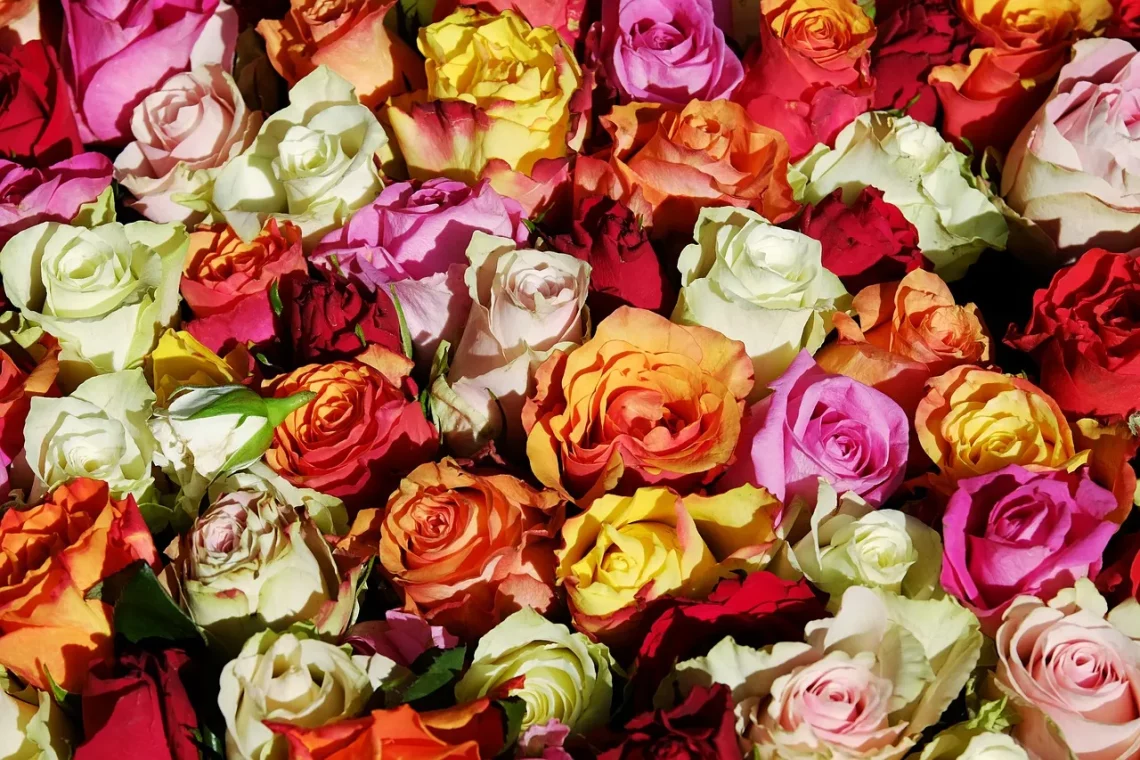
Love by Perfume: How Fragrance Influences Romance and Attraction
Fragrance has always held a special place in human culture, serving as a potent symbol of beauty, identity, and even emotion. The power of scent transcends the physical, tapping into our memories, desires, and instincts in ways that often elude our conscious understanding. When we think of attraction and romance, we might envision candlelit dinners and soft music, but the unsung hero in these intimate moments often lies in the air itself—the fragrances that envelop and define our experiences.
From ancient civilizations that used aromatic oils to stimulate desire to modern perfumers crafting complex blends that evoke various emotions, the relationship between scent and attraction is deep-rooted and multifaceted. Different scents can evoke feelings of warmth, comfort, and nostalgia, while others might ignite passion or intrigue. This article explores how fragrance influences romance and attraction, illuminating the ways in which scent can enhance our connections with others and enrich our romantic lives.
The Science Behind Scent and Attraction
The connection between scent and attraction is not merely anecdotal; it is grounded in science. Our sense of smell, or olfaction, is intricately linked to the limbic system, the part of our brain that processes emotions and memories. This means that a simple whiff of a particular fragrance can evoke powerful emotions or transport us to a specific moment in time.
Research shows that certain scents can trigger the release of hormones associated with attraction and desire. For instance, studies have indicated that pheromones—chemical signals released by the body—can influence social and sexual behavior. While humans may not rely on pheromones to the same extent as some animals, the subtle cues we emit can affect how others perceive us.
Moreover, the psychological impact of fragrance can enhance our own self-perception, boosting confidence and altering our mood. Wearing a scent that we find appealing can make us feel more attractive, which in turn can influence how others respond to us. This cyclical relationship between scent, self-esteem, and attraction creates a dynamic where the right fragrance can significantly enhance romantic encounters.
Fragrance also plays a critical role in personal branding. Just as we carefully curate our appearance, the scents we choose can communicate aspects of our personality, values, and mood. Whether it’s a fresh, floral scent that conveys youthfulness or a deep, musky aroma suggesting sophistication, the fragrance we wear can leave a lasting impression on potential romantic partners.
Cultural Perspectives on Fragrance and Romance
Across cultures, the interpretations of fragrance and its role in romance can vary significantly. In many Eastern cultures, for instance, scent has long been associated with spirituality and connection to the divine. Incense and essential oils are often used in rituals to attract love and prosperity, highlighting the belief that fragrance can enhance one’s spiritual and romantic life.
In Western cultures, perfume has been a symbol of luxury and status for centuries. Historical figures like Cleopatra and Marie Antoinette are known for their extravagant use of scent, using it not only to allure potential suitors but also to establish their identities. The allure of fragrance continues to be a prominent theme in literature and art, often representing the complexity of love and attraction.
Additionally, societal norms and expectations can shape how fragrances are perceived in the context of romance. In some cultures, floral fragrances may be celebrated as symbols of femininity and beauty, while woody or spicy scents might be associated with masculinity and strength. Understanding these cultural nuances can help individuals select scents that resonate not only with their personal preferences but also with the romantic contexts they find themselves in.
As globalization continues to blend cultural practices, the appreciation for diverse fragrances has grown. Many people now embrace scents from various cultures, allowing for a richer exploration of how fragrance can influence attraction across different societal backgrounds. This cultural exchange enhances our understanding of how scent can evoke emotions and memories, deepening our connections with others.
The Role of Personal Experiences in Scent Preference
Personal experiences significantly shape our fragrance preferences and, consequently, our romantic interactions. The olfactory system is one of the most powerful memory triggers, often linking specific scents to pivotal moments in our lives. For instance, a particular perfume might remind someone of a first date or a cherished relationship, evoking feelings of nostalgia and longing.
These associations can influence how we perceive scents in the context of new relationships. If a person wears a fragrance that reminds us of a positive experience, it can create an instant attraction or emotional bond. Conversely, a scent linked to negative experiences might evoke discomfort or aversion, impacting romantic prospects.
Furthermore, the act of sharing scents can deepen intimacy between partners. Couples often find joy in discovering fragrances that they both enjoy or that hold special meanings for them. This shared experience can create a unique bond, enhancing their emotional connection. Engaging in scent-related activities, such as visiting a fragrance store together or experimenting with creating their own signature scent, can also foster collaboration and intimacy.
The interplay of personal experiences and scent highlights the importance of individual preference in attraction. While cultural norms and scientific principles provide a framework for understanding fragrance and romance, personal stories and memories add layers of complexity that can significantly impact romantic relationships.
Selecting the Right Fragrance for Romance
Choosing the right fragrance can be an art form, especially when it comes to romance. Understanding the different fragrance families—floral, oriental, fresh, and woody—can help individuals find scents that resonate with their personality and the mood they wish to convey.
Floral scents often evoke feelings of romance and femininity, making them great choices for date nights or special occasions. Meanwhile, oriental fragrances, characterized by warm and sensual notes, are perfect for creating an intimate atmosphere. Fresh scents, like citrus or green notes, can convey a sense of excitement and energy, ideal for casual outings or first dates. On the other hand, woody scents offer depth and warmth, often associated with comfort and sophistication.
Layering fragrances can also create a unique signature scent that reflects one’s personality. Mixing different notes can evoke a sense of individuality and can be particularly appealing in romantic settings. Additionally, the way a fragrance interacts with one’s body chemistry can alter its scent, making it essential to test fragrances on the skin before making a decision.
It’s also important to consider the setting when selecting a fragrance. A light floral scent might be suitable for a sunny picnic, while a warm and spicy aroma could enhance a cozy evening indoors. Tailoring fragrance choices to specific occasions can heighten the overall romantic experience, making it more memorable.
Finally, communication is key. Discussing fragrance preferences with a partner can lead to a deeper understanding of each other’s tastes and desires, fostering a more connected and fulfilling romantic relationship.
In conclusion, the relationship between fragrance and romance is a complex tapestry woven from science, culture, personal experience, and individual preference. By understanding the profound impact that scent can have on attraction and intimacy, individuals can harness the power of fragrance to enrich their romantic lives and create lasting connections.
This article is for informational purposes only and should not be considered medical advice. For any health-related issues, please consult with a qualified healthcare professional.




